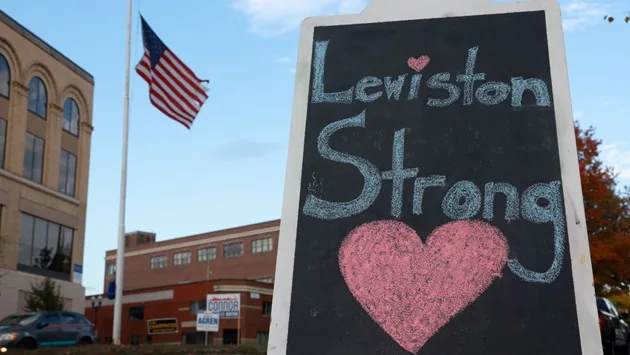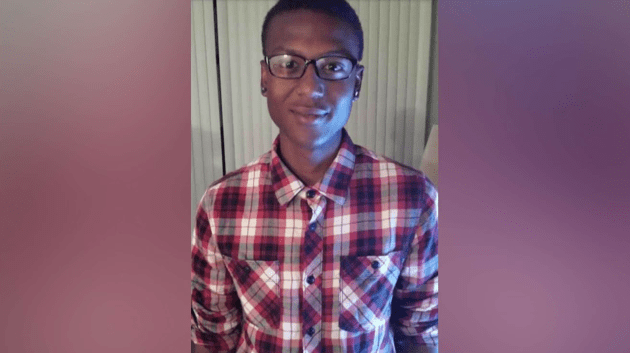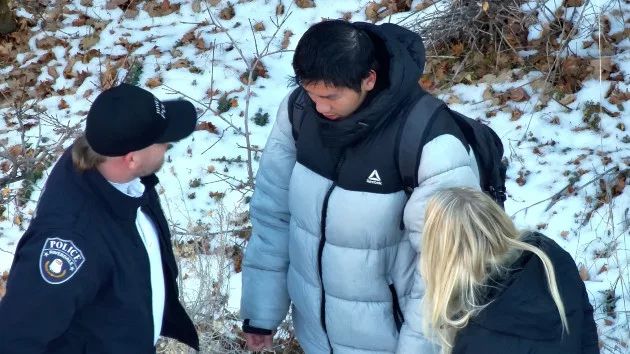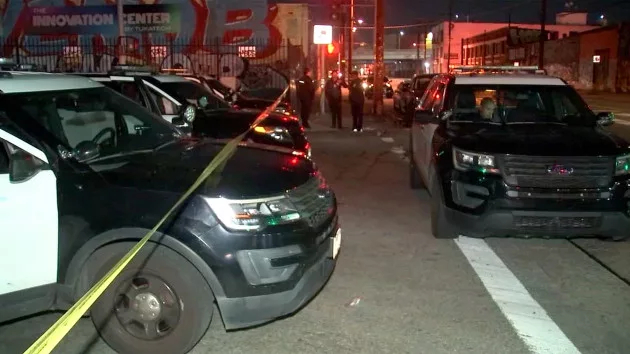
(LEWSITON, Maine) — Nearly three months before Robert Card would tear through a bar and a bowling alley in rural Maine last week — killing 18 and injuring 13 — he tried to buy a silencer for a rifle at a local firearms store, the owner said Saturday.
“He came in and filled out the form, he checked off a box that incriminated himself saying that he was in an institution,” Rick LaChapelle, owner of Coastal Defense Firearms, said. “Our staff was fantastic, let him finish filling out the form, and said, ‘I’m sorry, Mr. Card, we cannot give you this… at this point in time, we cannot release this silencer to you because of the answers that you’ve given us.”
LaChapelle added “we did what we were supposed to do and hopefully saved a lot of lives by the proper, just following the proper procedures.”
Had Card succeeded in buying the silencer, LaChapelle, the city council president in Lewiston, Maine, said he believes the rampage might have even been more deadly because people at the two locations would not have heard the rifle fire.
“He could have spent more time in each location,” LaChapelle said, adding that he was speaking as the business owner and not in his official capacity. “And it could have been more methodical, and my heart goes out to the people, the victims. This is just absolutely horrible, horrible. I’m frustrated that, I think, some of this could have been averted.”
Shortly before 7pm Wednesday, police said Card entered the Just-In-Time bowling alley in Lewiston with an assault-style rifle and killed seven. At 7:08 pm, police said he entered Schemengees Bar & Grille Restaurant 4 miles away, where he killed eight. Three victims would later succumb to their injuries in the hospital.
The rampage is the worst mass shooting in America this year and is one of the deadliest ever in a nation besieged by an epidemic of gun violence. The shootings also set off a massive regionwide manhunt after Card left Lewiston and drove 10 minutes to Lisbon, where he ditched his car and disappeared. He would be found dead of a self-inflicted gunshot wound two days later at the Lisbon recycling plant where he used to work, police said.
LaChapelle explained that Card had purchased the silencer online and was set to pick it up at the closest dealer, Coastal Defense, one of the largest gun stores in the region, he said.
On Aug. 5, LaChapelle said Card came into the store having already filled out some of the federal paperwork required to buy guns and certain firearms accessories.
On one box of a form required to complete the transfer, which was reviewed by ABC News, Card’s answer caught the attention of the store’s staff: “have you ever been adjudicated as a mental defective or have you ever been committed to a mental institution?” Card marked with an X, indicating “yes.”
The employees had no way of knowing then, but Card, according to a police bulletin reviewed by ABC News, had been “committed to mental health facility for two weeks during summer 2023 and released” after he reported that he had been hearing voices and made threats to shoot up a National Guard base.
But with Card’s ‘X’ on the spot, LaChapelle explained, his employees told the man they could not release the silencer to him.
Card was “very cooperative,” according to LaChapelle, saying he would sort out the issue with his attorney and that he was “sure” he could “get it clarified and rectified.” The silencer was put aside. Card never returned.
LaChapelle spoke with ABC News on Saturday, repeating a story he has already communicated to investigators now trying to piece together the details of a rampage that has stunned a quiet rural section of New England.
During a briefing Saturday morning, officials again said mental health is a key focus of their investigation into the shootings, in addition to Card’s possession of firearms and whether his psychiatric history should have barred him from possessing any guns at all.
Maine Public Safety Commissioner Mike Sauschuck said investigators had not seen evidence that Card was “forcibly committed” for mental health treatment.
“If that didn’t happen, then the next check you could go into as a firearms dealer, who does all of their work, and a background check is not going to ping that this individual is prohibited,” Sauschuck said.
Known for its liberal gun laws, Maine does not regulate assault-style weapons and allows residents and non-residents alike to carry concealed firearms without a permit, with very limited exceptions. The state has what is known as a “Yellow Flag” law that allows the state to prohibit firearm possession for someone amid a mental health crisis, but only after a report to police, a police investigation, exam by a doctor and then order from a judge. Critics say the regulation is ineffective because it creates undue delays in keeping guns out of the hands of those struggling through a mental health crisis.
At Saturday’s briefing, an ATF official said that the weapons that had been recovered appeared to have been purchased legally by Card.
An ATF spokesperson declined to comment on Card’s previous attempt to purchase a silencer Saturday evening, citing the ongoing investigation.
LaChapelle said he’s “very proud of my staff, that they handled this the proper way.”
“I feel this is really a safety issue that we prevented, somebody that has mental illness from getting it,” he said. “I live in this community, I raise my family in this community. This is a community I love. I don’t want something like that to happen.”
Copyright © 2023, ABC Audio. All rights reserved.





